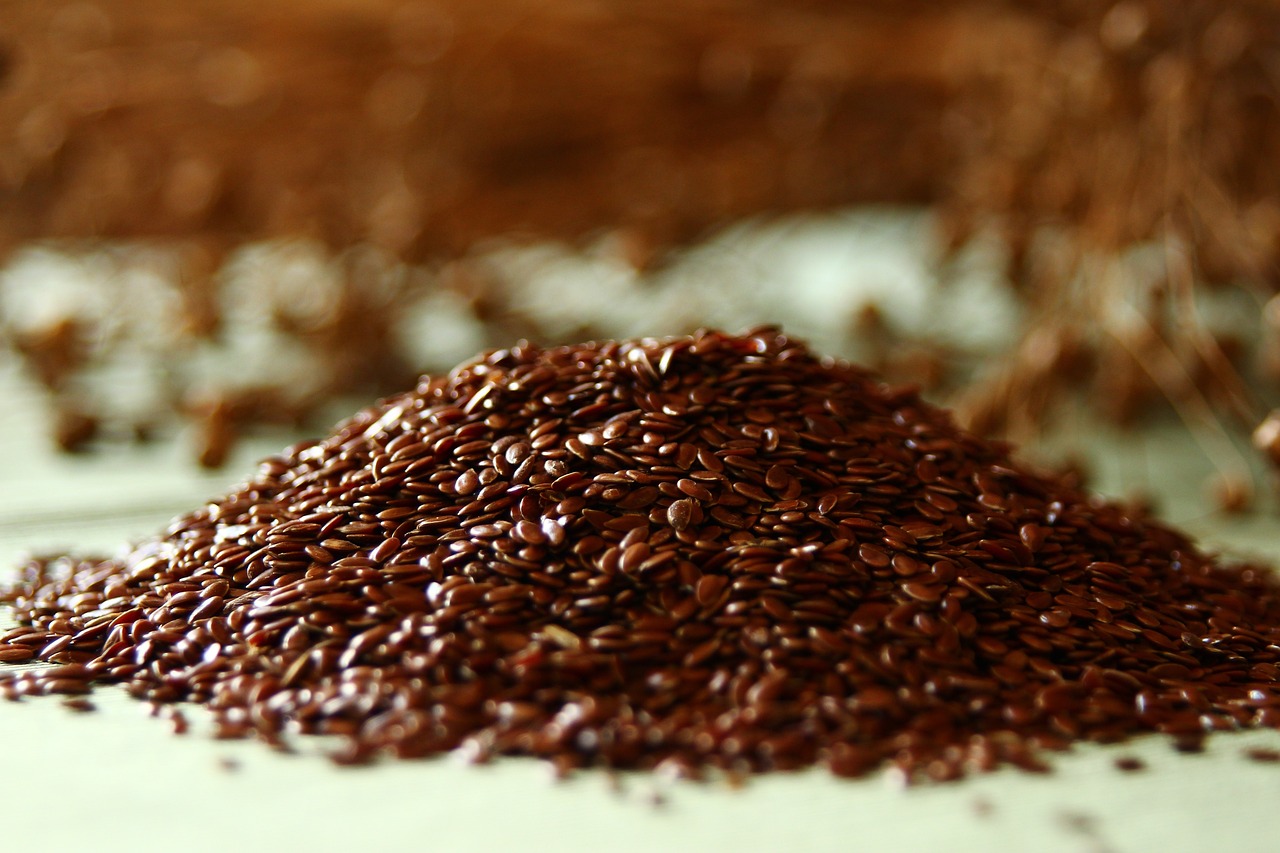
Flax seeds, also called linseeds, have been consumed for thousands of years due to their numerous health benefits. They are nutrient-dense and contribute to various health improvements, such as enhancing digestion and lowering the risk of chronic diseases like heart disease, diabetes, and cancer. This article discusses the nutritional profile of flax seeds, highlighting their high content of omega-3 fatty acids, fiber, and lignans. Flax seeds are particularly rich in alpha-linolenic acid (ALA), an essential omega-3 fatty acid beneficial for heart health, especially for those who do not eat fish. They also provide a significant amount of dietary fiber, which aids in controlling blood sugar and cholesterol levels and promotes digestive health. Lignans are plant compounds with antioxidant and phytoestrogen properties, with flax seeds being a rich source that aids in hormone balance and may lower breast cancer risk. Flax seeds also provide a good amount of plant-based protein, beneficial for muscle development and repair, and are packed with essential vitamins and minerals like vitamin B1, magnesium, phosphorus, and manganese, which support energy production, bone health, and general well-being. Here are few health benefits of flaxseeds.
- Heart health- Flax seeds are known for their benefits to heart health, primarily due to their omega-3 fatty acids, especially ALA, which reduce inflammation associated with heart disease. Research indicates that ALA lowers the risk of heart attacks, strokes, and high blood pressure. Additionally, lignans in flax seeds help decrease cholesterol levels by promoting bile excretion, which is made from cholesterol in the liver. The fiber in flax seeds further lowers LDL cholesterol, contributing to overall cardiovascular health.
- Digestive health- Flax seeds are beneficial for digestive health due to their high fiber content. Insoluble fiber helps prevent constipation and promotes regular bowel movements, making them particularly useful for individuals with digestive disorders like irritable bowel syndrome. The soluble fiber in flax seeds nourishes beneficial gut bacteria, supporting immune function and reducing inflammation in the digestive tract.
- Weight management- Flax seeds can aid in weight management due to their high fiber content, which absorbs water and expands in the stomach, promoting a feeling of fullness and reducing appetite. Additionally, the protein in flax seeds boosts the production of hormones that signal satiety, making them a beneficial addition to meals and snacks for individuals aiming to maintain a healthy weight.
- Blood sugar control- Flax seeds may help manage blood sugar levels due to their soluble fiber content, which slows down carbohydrate digestion and sugar absorption. This gradual release is especially helpful for people with type 2 diabetes or at risk of it. Studies suggest that regular intake of flax seeds can lower blood sugar levels and enhance insulin sensitivity, making them beneficial for blood sugar control and reducing the risk of diabetes-related issues.
- Cancer prevention- Flax seeds contain lignans, which are associated with a lower risk of hormone-related cancers, such as breast and prostate cancer. Lignans function as phytoestrogens, helping to balance hormones and inhibit the growth of hormone-sensitive tumors. Research indicates that women who regularly consume flax seeds have a reduced risk of breast cancer, while men may benefit from a lower risk of prostate cancer. Additionally, the antioxidant properties of lignans protect cells from oxidative damage, a key factor in cancer development.
- Skin and hair health- Flax seeds benefit skin and hair health due to their omega-3 fatty acids, which reduce skin inflammation and promote moisture retention, helping those with dry or sensitive skin. Regular intake can enhance skin texture and diminish wrinkles. They also support healthy hair growth by nourishing the scalp and reducing inflammation that might cause hair loss.
To incorporate flax seeds into your daily diet, consider these simple methods: Add a tablespoon of ground flax seeds to smoothies for extra omega-3s and fiber. Use flax seeds as an egg substitute in baking by mixing one tablespoon with three tablespoons of water. Sprinkle ground flax seeds on salads for added flavor and nutrients. Stir ground flax seeds into oatmeal or cereal for more fiber and healthy fats. Mix them into yogurt or cottage cheese for a nutritious snack. Include flax seeds in soups, stews, and sauces to enhance nutrient intake.
Precautions- Flax seeds are high in fiber, and consuming them in large quantities may cause digestive discomfort like bloating or gas, especially for those not accustomed to a high-fiber diet; starting with small amounts and gradually increasing is recommended. Flax seeds contain phytoestrogens, so individuals with hormone-sensitive conditions, such as breast cancer or endometriosis, should consult a healthcare provider before consuming large amounts. Additionally, flax seeds may interact with blood-thinning medications, so it’s important to consult a doctor if on such medication before adding flax seeds to the diet.
-Triparna







